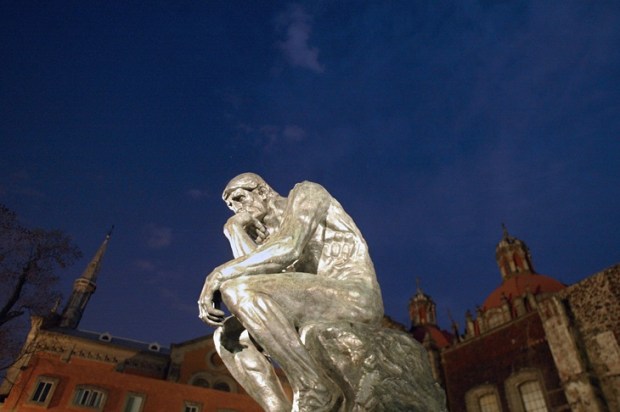The rising tide of word inflation has sparked recent debates surrounding politically correct language. The ‘anointed’ – mainstream media talking heads and progressive politicians – are quick to deem language as inappropriate, sometimes even criminal, when they do not align with new ‘inclusive standards’. Critics of political correctness, on the other hand, argue that new gender pronouns and terms like ‘undocumented’ instead of ‘illegal’ immigrant can obscure reality. Lengthier substitute phrases, like ‘person with disability’ instead of ‘disabled person’, have been criticised for evading real issues through ineffective language use.
The reason behind why politically correct words have garnered so much attention is because changes in cultural or social terminology are easily noticeable and directly impact daily life. In contrast, economic language has been quietly reshaped over decades, allowing socialist rhetoric to obscure the realities of living in a capitalist system, often without people fully recognising it.
Even self-described proponents of capitalism may be surprised to learn that the concept of ‘class’ doesn’t actually exist within capitalist thought. The term ‘income brackets’ provides a clearer framework for understanding economic divisions, but its usage has become less common because the more socialist-implied term ‘class’ has been deeply ingrained in our language. Even conservative outlets like Fox News, which vehemently oppose socialism, use ‘class’ when discussing the shrinking of the ‘middle class’, illustrating how these socialistic terms have become so commonplace that they are now an afterthought.
In reality, capitalism in the West offers more opportunities for economic mobility than other systems. A study conducted in the US, a mostly free market economy like Australia and the UK, demonstrated that the system doesn’t trap people in rigid ‘classes’. Instead, it fosters upward social mobility. Economists from Harvard and Berkeley, in the Quarterly Journal of Economics (2014), found that Americans born into the richest fifth of the population often moved out of that income bracket within 20 years, while those born into the poorest fifth advanced to a higher quintile, with 3 out of 4 people reaching the top 20 per cent at some stage in their lifetime.
Meanwhile, it is often socialist regimes, promising to abolish what they call ‘class distinctions’, that end up creating more rigid, hierarchical structures. North Korean defector Yeonmi Park, in a one-to-one interview on the Joe Rogan show, stated that every North Korean subject can only marry those in the same class as their own. Based on her personal experience in North Korea, Park claimed that the North Korean government ‘divided people into 50 different classes’ where ‘marrying up’ was prevented.
The imprint that socialist terminology leaves on the subconscious is more evident in those who supported socialism in their youth but later embraced the markets. Before I began writing this piece, an acquaintance of mine, who came to appreciate capitalism and engaged in day trading, told me that he left socialism because he ‘was not a proletariat’. Although ‘proletariat’ may not be a strictly leftist term – originating from the Roman class ‘proletarii’ – its mention still highlights how the socialistic paradigm is carried over by those who have abandoned socialism.
Many people, even those who now recognise the importance of markets, still view the world through a proletariat-bourgeois lens, even if they no longer subscribe to socialism. This shows how socialism has subtly influenced language and thought. Many, especially the youth, continue to see capitalism as inherently evil, believing it is in desperate need for more interventionist reforms. This paradigm stems from working with a flawed definition of capitalism, often a socialist’s definition of capitalism.
There has been a significant disconnect between political philosophers who support capitalism and socialist thinkers who oppose it. The difficulty in debate between pro-capitalists and socialists arises because each side operates with its own definitions. In particular, socialists have imposed their own definition of capitalism without the agreement of actual pro-capitalist thinkers. For instance, Karl Marx’s definition of ‘capitalism’ focuses on the control and accumulation of material capital, achieved only through the ‘exploitation of labour’.
Yet, there is an irony in how socialists often insist that conservatives or supporters of capitalism engage with Marx’s Communist Manifesto before offering their opinions on socialism, while at the same time feeling justified in defining their opponent’s system in ways that suit their own argument. In actuality, capitalism is less about material capital than it is about human capital.
When thinking about ‘capitalism’, what is less likely to come to mind is economist Walter E. Williams’ definition about how ‘capitalism made it possible to become wealthy by serving your fellow man’, whereas previous systems depended on ‘looting, plundering, and enslaving’ others. Milton Friedman, another prominent economist, further explained that the ‘improvements of productivity’, including higher employment, have been a result of ‘investment by people of their savings’.
The recent debates on shifts in terminology at the social level are not a new phenomenon, as socialist thinking patterns have quietly influenced how we perceive our economic system for over a century. This influence is reflected in the curriculum and selected literature in high schools and universities, where a socialist understanding of capitalism is perpetuated. It is no wonder that young people show little interest in capitalism when, even upon hearing its definition, they are dissuaded because it has been wrongly linked to exploitation.
Raising awareness of the works of capitalism’s proponents, such as Friedman, Hayek, and Williams, can be achieved at a grassroots level. This includes increasing youth exposure to pro-capitalist think tanks to challenge the belief that socialists are the ‘idealists’ while capitalism’s supporters are ‘ruthless pragmatists’. In reality, capitalism, both at its definitional level and in practice, has been a force that empowers people, despite the prevailing socialist interpretations with which most are acquainted.

























